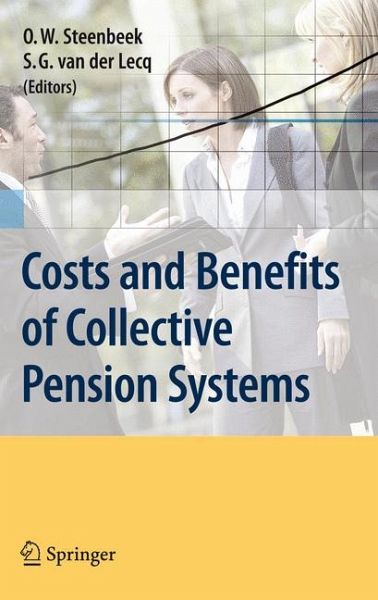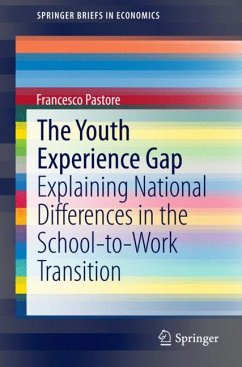
Costs and Benefits of Collective Pension Systems (eBook, PDF)
Versandkostenfrei!
Sofort per Download lieferbar
72,95 €
inkl. MwSt.
Weitere Ausgaben:

PAYBACK Punkte
36 °P sammeln!
The Dutch pension system is often praised as one of the best in the world: it is efficient, it provides certainty to participants and it preserves cohesion and solidarity among workers and pensioners. This book presents these benefits in detail, supported by quantitative evidence. It also discusses the aspects of the system that are less favourable, such as implicit value transfers from younger to older generations that limit mobility of labour. The analyses of both benefits and costs will help pension fund managers, boards of trustees, supervisors, and researchers to understand and to improve...
The Dutch pension system is often praised as one of the best in the world: it is efficient, it provides certainty to participants and it preserves cohesion and solidarity among workers and pensioners. This book presents these benefits in detail, supported by quantitative evidence. It also discusses the aspects of the system that are less favourable, such as implicit value transfers from younger to older generations that limit mobility of labour. The analyses of both benefits and costs will help pension fund managers, boards of trustees, supervisors, and researchers to understand and to improve pension systems currently in place around the world. The book is explicitly recommended by Robert C. Merton (Nobel Laureate).
Dieser Download kann aus rechtlichen Gründen nur mit Rechnungsadresse in A, B, BG, CY, CZ, D, DK, EW, E, FIN, F, GR, HR, H, IRL, I, LT, L, LR, M, NL, PL, P, R, S, SLO, SK ausgeliefert werden.













